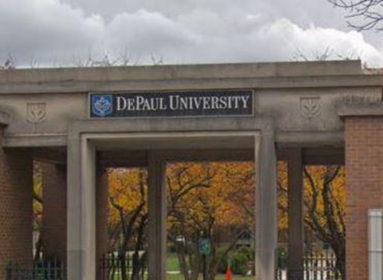
By Ben Sales
TEL AVIV (JTA) — The murder of a 16-year old girl at Jerusalem’s gay pride parade has sparked calls for LGBT-rights legislation — as well as pushback from those who oppose it.
Shira Banki died Sunday after being stabbed while marching in the parade on Thursday night. Five others were wounded in the stabbing.
“It never crossed our mind that Shira would be murdered as a symbol,” her parents said in a eulogy Monday, according to a copy of the text on the Israeli news site Ynet. “An unnecessary death of a young girl, innocent and full of good intentions and deeds. A death that gives us and hundreds of other people sorrow and pain as deep as the sea, without end or benefit.”
The alleged assailant, Yishai Schlissel, a haredi Orthodox man from Modiin Ilit in the West Bank, had been sent to prison for committing a similar stabbing at the same parade in 2005. Schlissel was freed from prison for that crime last month. He is now in custody.
The attack also comes six years after a shooting at a gay club in Tel Aviv that killed two and wounded a dozen others.
Israel’s leaders condemned the stabbing attack. Prime Minister Benjamin Netanyahu promised to “deal with the murderer to the fullest extent of the law.”
“Shira was murdered because she courageously supported the principle according to which everyone is entitled to live their lives in dignity and safety,” he said in a statement Monday. “We will not allow the abhorrent murderer to undermine the fundamental values upon which Israeli society is based.”
The attack prompted calls for legislation that would protect LGBT rights, as well as an end to denunciations of LGBT Israelis. Knesset member Itzik Shmuli of the Zionist Union announced publicly that he is gay in a column in the Israeli daily Yediot Acharonot Friday. Keren Neubach, an Israeli journalist, also came out of the closet in the wake of the attack.
“We can no longer remain silent because the knife is raised against the neck of the entire LGBT community, my community,” Shmuli wrote. “It will not stop there. This is the time to fight the great darkness.”
But the outcry over the stabbing also led to pushback. Education Minister Naftali Bennett was disinvited from a protest against violence on Saturday night after he refused to sign a pledge to advance LGBT-rights legislation. Bennett defended his decision, saying he supports gay rights with limitations. After the attack, he increased the budget of an LGBT youth group, Israeli Gay Youth.
“We have specific disagreements,” Bennett said Monday morning on Israel’s Army Radio. “I’m for full rights for the gay community in terms of civil rights. In terms of formal Israeli state recognition of marriage, we’re not there. That’s the argument.”
Another member of Bennett’s Jewish Home party, Knesset member Betzalel Smotrich, took a harder line against gay rights activists. Smotrich is a longtime opponent of the gay rights movement.
“The witch hunt has begun,” Smotrich tweeted Sunday after Bennett’s disinvitation. “Everyone who dares to oppose same-sex marriage and abomination marches is arrested by the police. Delusional. A dark day for democracy. Enough silencing!”
Many Israeli politicians have sought to draw a link between Thursday’s stabbing and the torching of a Palestinian home hours later that killed an 18-month-old boy. Rallies across Israel on Saturday night decried the violence, while Israeli President Reuven Rivlin called for stronger action to prevent future attacks.
On Monday, Rivlin spoke of Banki at a conference of Israel’s General Federation of Students and Young Workers.
“She joined the parade in the name of the values in which she believed — tolerance, equality, hope and love,” he said. “The battle against incitement and hatred does not begin and end with police protection. Silence and indifference to both real and virtual threats will only increase the danger.”
CAP: Israeli President Reuven Rivlin








 Southern New England Jewish Ledger
Southern New England Jewish Ledger













